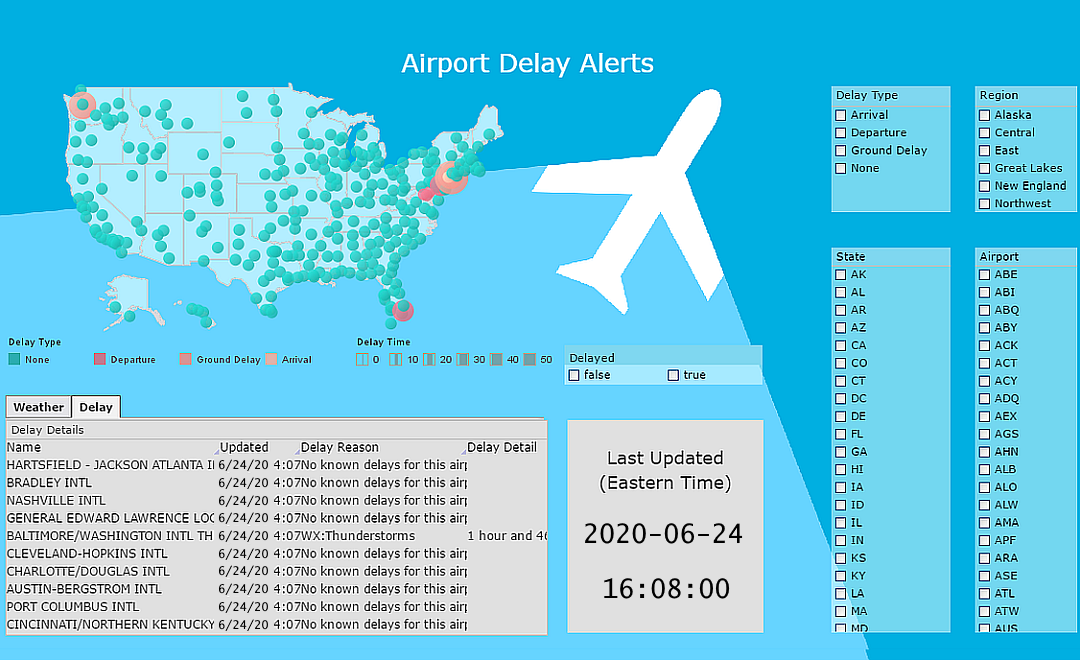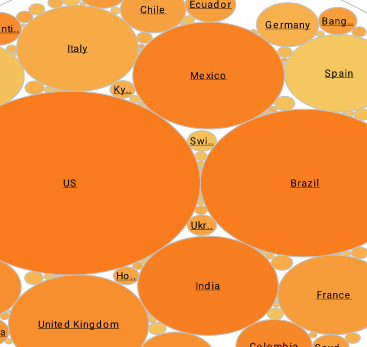What KPIs and Analytics Do Data Operations Professionals Use?
The efficient, precise, and secure processing of data is the responsibility of data operations specialists. They oversee data analysis, storage, warehousing, and pipelines. Data operations experts employ key performance indicators (KPIs) and analytics to assess the effectiveness of their operations and make wise choices.
We will examine the most popular KPIs and analytics utilized by data operations experts in this post.
| #1 Ranking: Read how InetSoft was rated #1 for user adoption in G2's user survey-based index | Read More |
KPIs for Data Operations Professionals
KPIs are quantitative measurements that are used to assess an organization's or a person's performance. KPIs in the context of data operations may assist data operations experts in determining areas for improvement or strong performance. Some of the most popular KPIs used by data operations experts are listed below:
Data Accuracy
Data consistency, reliability, and error-freeness are gauged by data correctness. Inaccurate data may result in inaccurate conclusions and judgments, which can have serious repercussions for a company. Data correctness may be measured by data operations experts using KPIs like data error rates, data completeness, and data consistency.
Data Availability
Data usability and accessibility are gauged by data availability. For firms that depend on real-time data to make decisions, this KPI is especially crucial. Data availability may be measured by data operations experts using KPIs like data uptime, data access speed, and data query response time.
Data Security
Data protection from illegal access, use, disclosure, or destruction is measured by data security. KPIs like data breaches, data loss, and data encryption may be used by data operations experts to gauge data security.
Data Processing Speed
The amount of time it takes to process a certain quantity of data is measured as data processing speed. For firms that must analyze massive volumes of data in real-time, this KPI is especially crucial. Data processing speed may be measured by data operations experts using KPIs including data processing time, data throughput, and data transmission speed.
 |
Learn about the top 10 features of embedded business intelligence. |
Analytics for Data Operations Professionals
Analytics describes the method of analyzing data to discover patterns and take judgment calls. Analytics is a tool that data operations experts use to increase the efficiency of their processes, spot patterns and trends, and reach wise conclusions. The following are some of the most typical analytics used by data operations specialists:
Data Visualization
The process of developing visual representations of data, such as charts, graphs, and dashboards, is known as data visualization. Data visualization is a tool used by data operations experts to spot trends, patterns, and anomalies in their data. Data operations specialists may convey insights to stakeholders and make data-driven choices with the use of data visualization.
Data Mining
The practice of identifying patterns and trends in huge data sets is known as data mining. Data operations specialists utilize data mining to find hidden links and insights in their data. Professionals in data operations might use data mining to streamline their processes and raise the caliber of their data.
Predictive Analytics
The term "predictive analytics" refers to the process of determining the probability of future events based on previous data by employing data, statistical algorithms, and machine learning approaches. Professionals in data operations utilize predictive analytics to plan operations intelligently and to improve their operations based on expected results.
 |
Learn the advantages of InetSoft's small footprint BI platform. |
Data Integration
The process of merging data from several sources into a single, cohesive perspective is known as data integration. Data operations specialists utilize data integration to build a complete picture of their business operations and to spot trends and patterns in various data sources. Professionals in data operations may find that data integration enables them to take a comprehensive approach to decision-making.
Data Retention
The amount of time that data is held and preserved is measured as data retention. Data operations specialists may assess data retention using KPIs including data retention guidelines, data archiving, and data backup.
Data Compliance
Data compliance assesses how closely data operations adhere to legal and regulatory obligations. Data operations specialists may gauge data compliance using KPIs including data compliance audits, data compliance regulations, and data compliance infractions.
Data Monetization
Data monetization gauges an organization's capacity to make money out of its data. Data monetization may be measured by data operations experts using KPIs including data monetization strategies, data product income, and data consumption analytics.
Other KPIs and Analytics Used by Data Operations Professionals
Data operations experts may utilize other KPIs and analytics in addition to those already stated to evaluate the effectiveness of their operations and come to wise judgments. Additional KPIs and analytics that data operations specialists employ include the following:
Data Storage Efficiency
The quantity of data that can be saved in a certain amount of storage space is measured as data storage efficiency. Data operations specialists may gauge the effectiveness of data storage using KPIs like the data compression ratio and the data deduplication ratio.
Data Quality
Accuracy, completeness, consistency, and relevance are all factors in data quality, which is measured overall. KPIs like data validation error rates, data cleaning efficiency, and data normalization precision may be used by data operations specialists to gauge the quality of the data.
Data Governance
Data management as a whole, comprising procedures, standards, and rules, is referred to as data governance. Data operations specialists may gauge data governance using KPIs like data compliance, data quality control, and data privacy.



